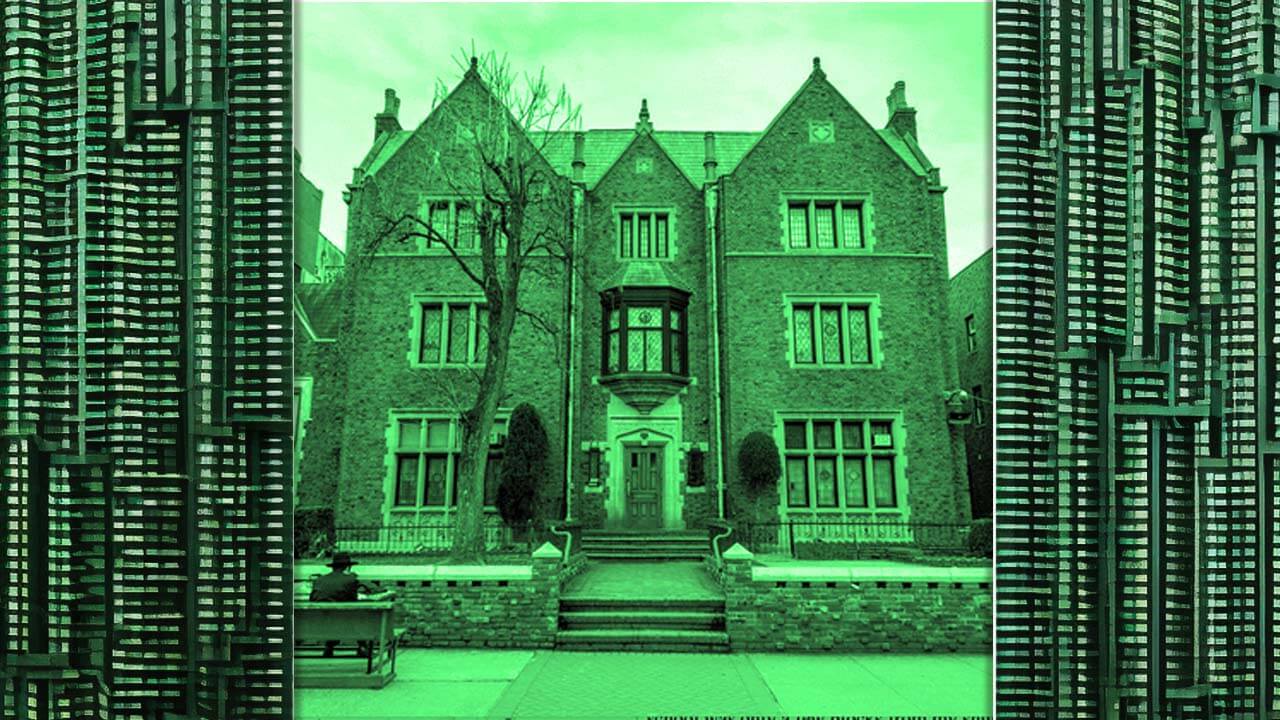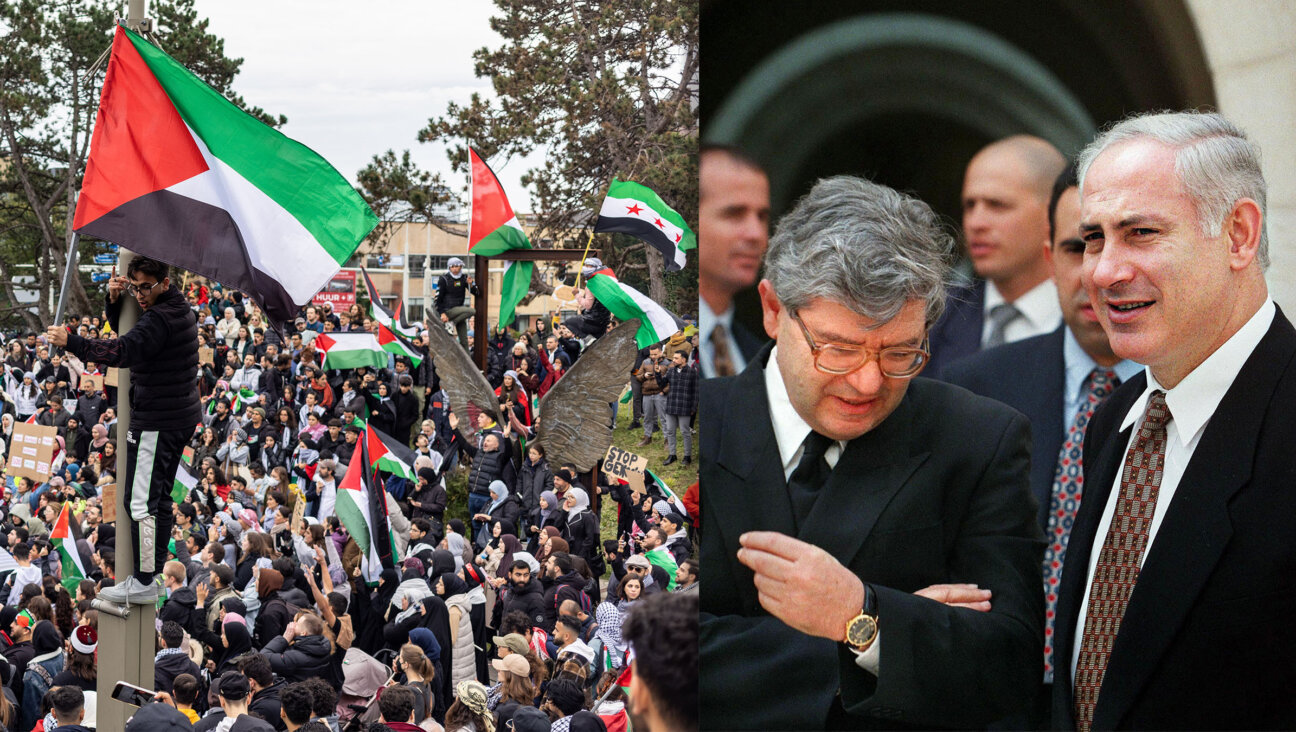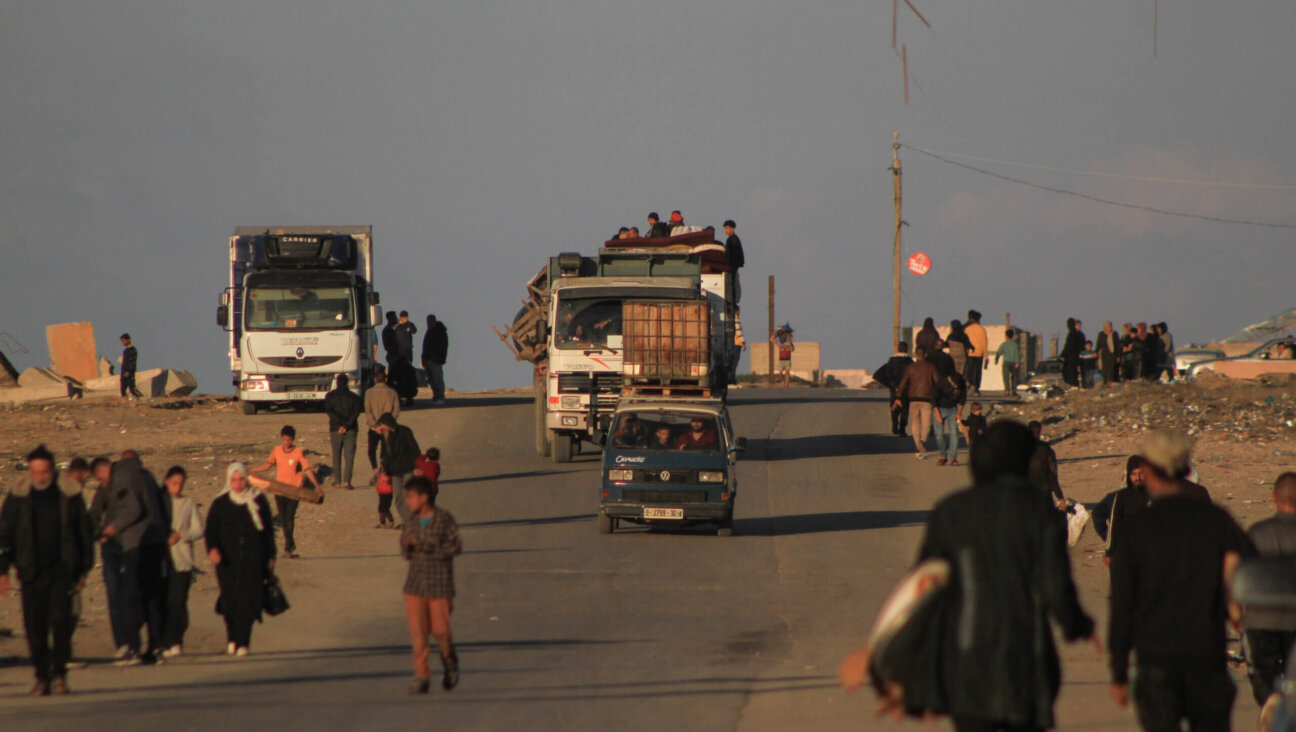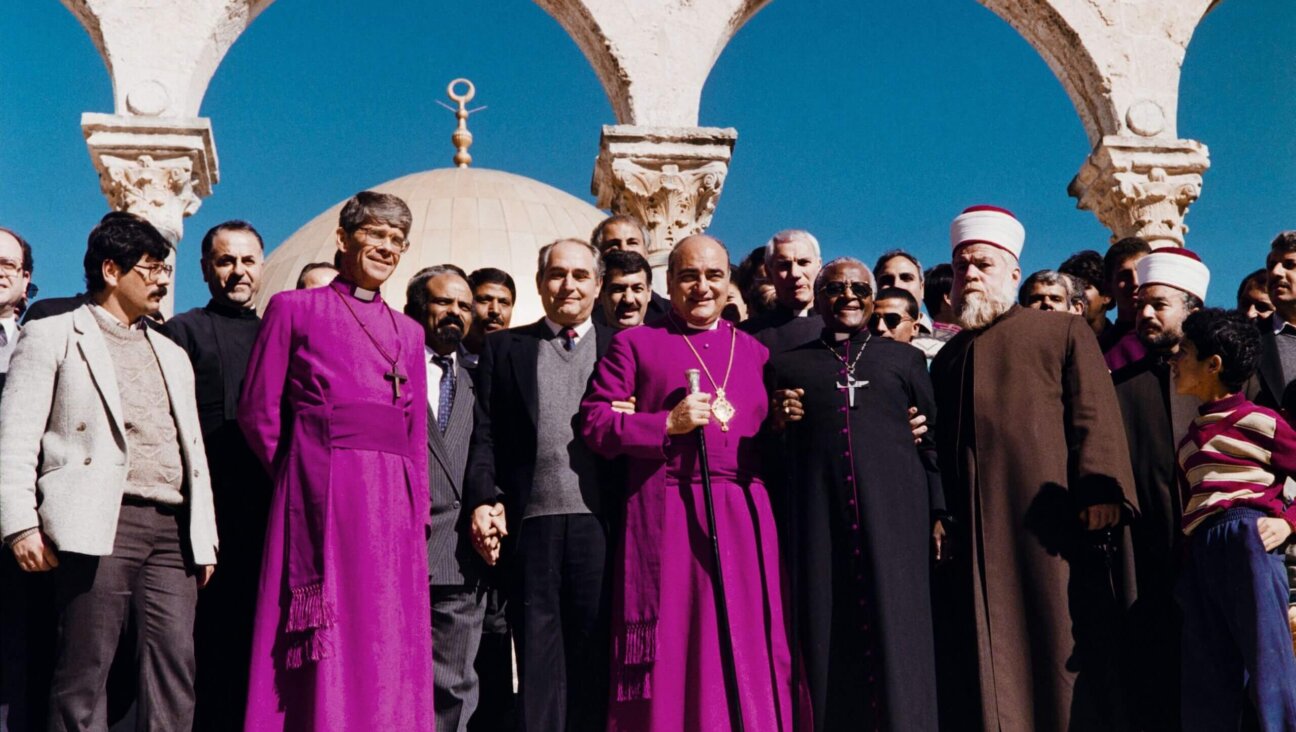Zelenskyy is a Jewish hero. That doesn’t erase Ukraine’s complicated past

Foreign volunteer fighters of the Azov Battalion who are originally from Belarus attend a protest at the Ukrainian parliament on June 4, 2019 in Kiev, Ukraine. The Azov Battalion holds ultra right-wing political views but has also been one of the most effective fighting battalions in Ukraines five year long war against pro-Russian separatists in the east of the country. By Martyn Aim/Getty Images
Ukrainian President Volodoymyr Zelenskyy has led a courageous and unexpectedly strong resistance to the brutal and murderous invasion by Russia, rising to the challenge of the moment in a heroic and extraordinary way.
I am proud that he is Jewish. But despite his fearlessness and eloquence in support of Ukraine, I still find myself troubled by his use of Holocaust memory and analogies.
Although it’s been almost 80 years since the end of World War II, Ukraine’s legacy of collaboration with the Nazi regime is hard for most Jews to forget.
Soviet agriculture policy in the 1930s created a famine known as the Holodomor, which killed several million Ukrainians. This experience turned many Ukrainians against the USSR and made them more open to working with the Nazis, but does not explain away the enthusiastic collaboration of many in western Ukraine with the genocide against the Jews.
In several Nazi death camps, many of the guards were Ukrainian — largely because the Germans understood how willing they were to participate in murdering Jews.
Many Jews in the US and elsewhere are familiar with that history, as well as stories of Ukrainian anti-Semitism going back well before the horrors of the Holocaust.
Since gaining independence in 1991, there have been political forces in Ukraine that remain somewhat sympathetic to Nazism as well. This includes the Azov Brigade as well as frequent efforts to recognize Stepan Bandera, a Ukrainian ultranationalist and Nazi collaborator, as a national hero.
None of this ugly history legitimizes what Putin is doing to Ukraine now, but is also wrong to let this history be erased.
Zelenskyy himself has complicated the situation by comparing Russia’s attack to the Holocaust. In a speech to the Knesset, he invoked the phrase “final solution” and in other settings has used the word “genocide” to describe the war.
It should be possible, in fact essential, to support the Ukrainian people and to recognize and condemn the atrocities and war crimes Russia continues to commit while also understanding that in terms of scope, and indeed aim, they are not comparable to the Holocaust.
Zelenskyy’s words, precisely because he is Jewish, make that distinction more difficult, blurring the lines between Hitler’s genocide against the Jews and other terrible events such as this war.
Zelenskyy’s recent speech to the Israeli Knesset reflected this difficulty. His appeal to Israel for support in Ukraine’s war against Russia was powerful and eloquent. It was indeed an extraordinary moment to see Jewish Ukrainian President speak so passionately and persuasively on behalf of his country.
It is good for the Jews that the leading voice against one of the worst tyrants in the world is Jewish. Israel should respond to Zelenskyy’s appeal by accepting more refugees and sharing technology that could help save Ukrainian people from Russian bombs.
But the last line of Zelenskyy’s speech is hard to ignore and landed very differently:
“Ukrainians have made their choice. Eighty years ago. They rescued Jews. That is why the Righteous Among the Nations are among us. People of Israel, now you have such a choice.”
This is an extraordinary interpretation of what happened in Ukraine 80 years ago. There were indeed some righteous gentiles in Ukraine who saved some Jews, but to suggest that was the overall attitude of Ukrainians is a dramatic misreading of history — as one Israeli MK described, it was “borderline Holocaust denial.”
The worst we can say about Zelenskyy is that he is guilty of hyperbole in a desperate moment. He is a Jewish hero unlike any the world has known, fighting with everything he has for his country.
But neither his heroism nor words can change the difficult history of Ukraine and the Jews. Minimizing the Holocaust and refusing to confront the complicity of so many in that genocide is never good for the Jews, even if it is in service of an important goal.





















